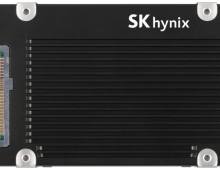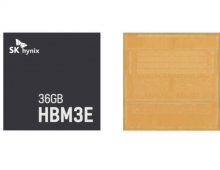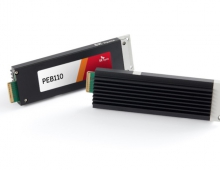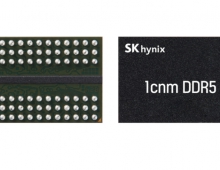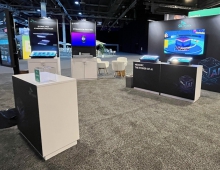
Elpida Memory Develops 2 Gigabit DDR2 SDRAM Using 80 nm Process
Elpida Memory Develops 2 Gigabit DDR2 SDRAM Using 80 nm Process Technology for Servers.
Elpida Memory announced that it has completed the development of a 2 Gigabit DDR2 SDRAM device, the first to use its 80 nm process technology.
Elpida's 80 nm process technology utilizes an ArF scanner, an advanced lithography technology, which is key in the development of advanced process technology.
"Elpida always remains focused on its ability to deliver high-performance DRAM products that utilize advanced process technology," said Yukio Sakamoto, president and CEO of Elpida Memory. "2 Gigabit DDR2 SDRAM is the highest density DRAM device available in the industry, and our ability to establish its development at 80 nm demonstrates our readiness to support high-speed products, such as DDR2-800, that are required by the high-performance computing market."
Elpida's 2 Gigabit DDR2 SDRAM at 80 nm will provide advantages including high-speed performance -- a necessary element for high-performance DRAM products such as DDR2-800 -- as well as reduced operating current. The device will also maintain the same operating current as a 1 Gigabit DDR2 SDRAM device therefore, providing double the density without an increase in power requirements. The advanced 80 nm process technology also allows die to be packaged in 68-ball FBGA packages that can be stacked and mounted on a JEDEC-standard (30 mm height) registered Dual In-Line Memory Module (DIMM) or on a Fully-Buffered DIMM (FB-DIMM) at 30.35 mm height. This flexibility will allow Elpida to realize 4 Gigabyte and 8 Gigabyte density DDR2 modules. These modules will allow high-end computing systems, such as mission critical database servers, to utilize the benefits of a 2 Gigabit-based DRAM solution without compromising system performance.
Availability
Volume production is expected to begin by the end of this fiscal year in accordance with market demand. Pricing for these products will be based on market conditions at that time.
Elpida's 80 nm process technology utilizes an ArF scanner, an advanced lithography technology, which is key in the development of advanced process technology.
"Elpida always remains focused on its ability to deliver high-performance DRAM products that utilize advanced process technology," said Yukio Sakamoto, president and CEO of Elpida Memory. "2 Gigabit DDR2 SDRAM is the highest density DRAM device available in the industry, and our ability to establish its development at 80 nm demonstrates our readiness to support high-speed products, such as DDR2-800, that are required by the high-performance computing market."
Elpida's 2 Gigabit DDR2 SDRAM at 80 nm will provide advantages including high-speed performance -- a necessary element for high-performance DRAM products such as DDR2-800 -- as well as reduced operating current. The device will also maintain the same operating current as a 1 Gigabit DDR2 SDRAM device therefore, providing double the density without an increase in power requirements. The advanced 80 nm process technology also allows die to be packaged in 68-ball FBGA packages that can be stacked and mounted on a JEDEC-standard (30 mm height) registered Dual In-Line Memory Module (DIMM) or on a Fully-Buffered DIMM (FB-DIMM) at 30.35 mm height. This flexibility will allow Elpida to realize 4 Gigabyte and 8 Gigabyte density DDR2 modules. These modules will allow high-end computing systems, such as mission critical database servers, to utilize the benefits of a 2 Gigabit-based DRAM solution without compromising system performance.
Availability
Volume production is expected to begin by the end of this fiscal year in accordance with market demand. Pricing for these products will be based on market conditions at that time.

